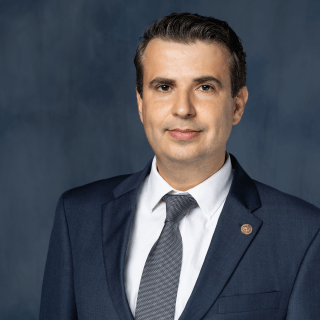Source: UF Health - Cancer Center
Ramzi Salloum, Ph.D., Associate Professor in the Department of Health Outcomes & Biomedical Informatics, has received a $2.6 million grant from the National Cancer Institute to compare the effectiveness of evidence-based tobacco treatment interventions in Lebanon.
The five-year project will compare three strategies in Lebanon’s national system of safety net primary health care centers, which serve more than 50% of the population. The first involves asking about tobacco use, advising to quit and assisting with brief counseling as the standard care. The second involves asking, advising and connecting to phone-based counseling. The third combines the second with nicotine replacement therapy.
The interventions were developed based on strong evidence that combining behavioral counseling and pharmacotherapy is more effective than either alone, Salloum said. Furthermore, directly connecting smokers to phone-based counseling is more effective than standard referral, and access to nicotine replacement therapy in Lebanon and other low-resource settings is often limited.
The project is a culmination of a decade-long collaboration between Salloum and the American University of Beirut. The team has played a leading role in implementing and evaluating tobacco control legislation in Lebanon and the Eastern Mediterranean region, and it conducted the first nationally representative household survey in Lebanon to characterize the exceptionally high prevalence of cigarette and waterpipe smoking among adults.
“This study will address key gaps in the prior research regarding which replicable tobacco treatment interventions are effective and cost-effective in low-resource settings,” Salloum said. “Prior research suggests that improving the effectiveness of such interventions requires a multilevel approach that addresses both the context of care and the barriers to behavior change. The project addresses an urgent need for research into implementation challenges that limit the impact of evidence-based interventions in low-resource settings to reduce the global burden of cancer.”

